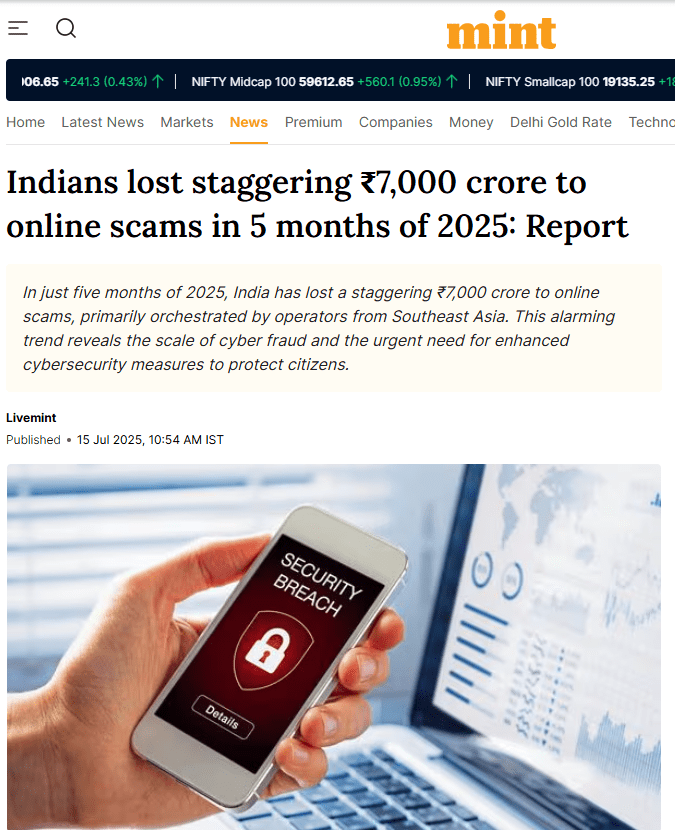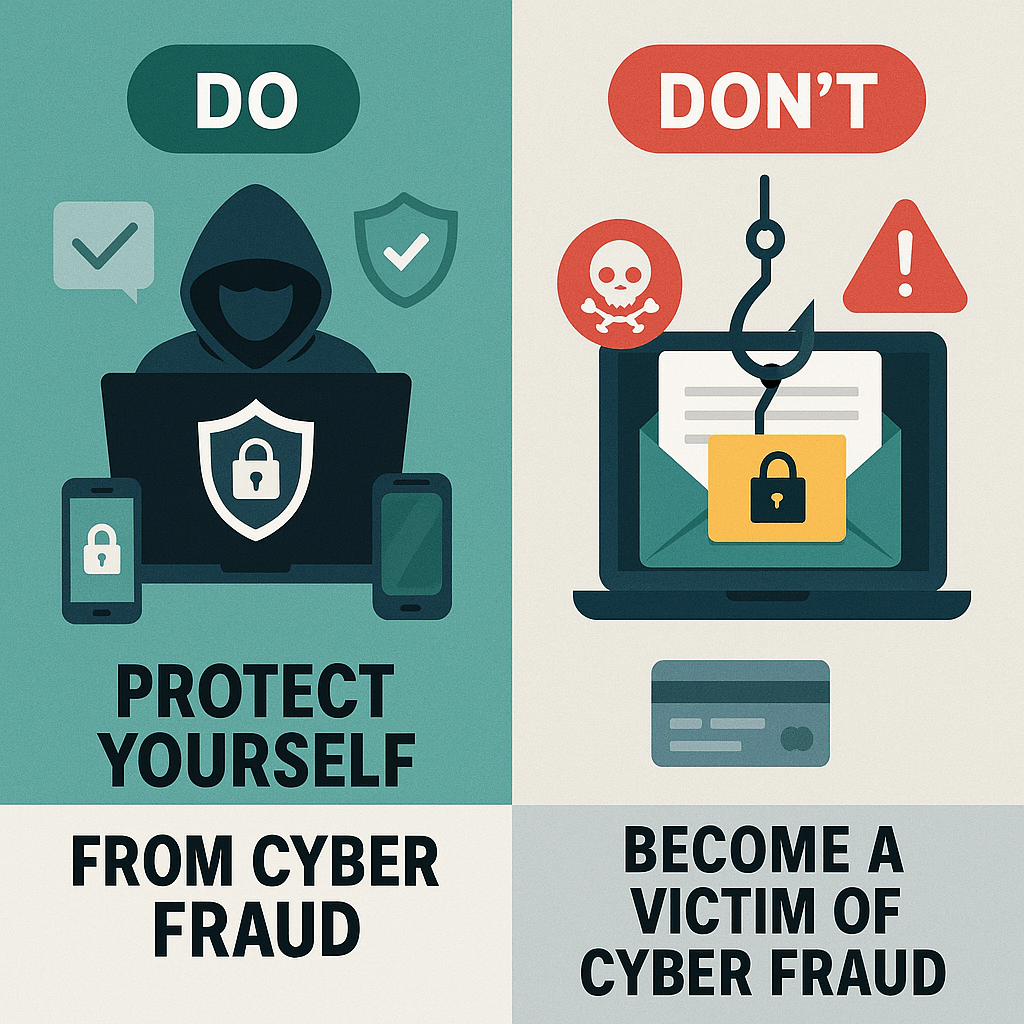
In just five months of 2025, India has lost a staggering ₹7,000 crore to online scams, primarily orchestrated by operators from Southeast Asia. This alarming trend reveals the scale of cyber fraud and the urgent need for enhanced cybersecurity measures to protect citizens.
Indians lost around ₹7,000 crore to online scams in the first five months of 2025, an estimate by Ministry of Home Affairs (MHA) has revealed.
More than half of this amount was lost to scamsters operating out of Cambodia and other Southeast Asian countries such as Myanmar, Vietnam, Laos and Thailand, according to the report in the Indian Express.
The analysis of the data compiled by the Indian Cyber Crime Coordination Centre (I4C), a unit under MHA, revealed that these scams are often run from high-security locations, reportedly controlled by Chinese operators, where trafficked people, including Indians, are forced to work, the Indian Express report said.
According to the report, the scams led to a loss of around ₹1,000 crore every month in India on average.
Victim Voices: Real Stories Behind the Numbers
Ritu Sharma, a 32-year-old software engineer from Bengaluru, lost ₹4.5 lakh in an investment scam that promised 25% monthly returns. “They had a sleek website, customer support, and even influencers promoting them on YouTube. It looked so real,” she recalls.
In Delhi, a retired schoolteacher was scammed of ₹2 lakh after downloading a fake “technical support” app that mirrored her bank’s customer service.
These stories are increasingly common—and preventable with greater awareness.

Preventive Awareness:
How Scammers Operate
Cybercriminals are using increasingly deceptive tactics to lure victims:
- Fake job offers and work-from-home scams
- Fraudulent customer support numbers
- Investment apps promising high returns
- Deepfake videos of celebrities promoting scams
- OTP and UPI frauds using social engineering
Do’s and Don’ts to Stay Safe from Online Scams

DO’s
- Verify links before clicking. Always check if a website URL is genuine.
- Enable two-factor authentication (2FA) on all financial and email accounts.
- Use official apps and websites for transactions. Avoid third-party download links.
- Report scams immediately on the National Cyber Crime Portal: cybercrime.gov.in.
- Educate family and friends, especially elderly members, about common scams.
- Install trusted antivirus software and keep it updated.
DON’Ts
- Don’t share OTPs or passwords, even with people claiming to be from the bank.
- Don’t click on suspicious ads, links, or pop-ups, especially on unknown websites.
- Don’t download apps from unofficial sources or unknown developers.
- Don’t respond to unknown callers asking for money or offering “prizes.”
- Don’t invest in schemes promising unrealistic returns. If it sounds too good to be true, it probably is.
What the Experts Say
Ravi Goyal, a cybersecurity consultant with IndiaSec Labs, warns:
“Scammers are no longer working from dingy cyber cafés. These are well-funded criminal enterprises using AI, deepfakes, and psychological tactics. No one is immune.”
CERT-In, India’s top cybersecurity watchdog, has issued repeated alerts on the use of fake trading apps, remote access tools, and deceptive messages that clone official communications from banks or government agencies.
Government & Police Response
- The Indian Cybercrime Coordination Centre (I4C) is working with state police to trace scam networks.
- A 24×7 cybercrime helpline (1930) is available nationwide.
- Over 85,000 complaints have been filed on the government’s official portal: cybercrime.gov.in
- Police are urging citizens to report scams immediately rather than remain silent.
Final Thoughts: Digital India Needs Digital Awareness
As India continues its digital transformation, from UPI to AI, the need for cybersecurity awareness at the individual level is now critical. The massive ₹7,000 crore loss in just five months is more than a statistic—it’s a national wake-up call.